Lviv Lvov Lwow Lemberg Famous People
When I first began compiling the names of notable Leopolitans in 1998, I was amazed to discover how many remarkable people—famous in literature, the arts, science, philosophy, and more—have roots in my hometown. For a city of such modest size, Lviv has produced far more influential figures than one might expect. Many were “famous everywhere except their own city.”
The list below features people who were born in Lviv/Lvov/Lwów/Lemberg or whose lives and work were closely connected to the city. No such list can ever be truly complete, but let’s celebrate as many as we can.
The city’s many names—Lvov, Lwów, Lemberg, Lviv—reflect its rich and multicultural heritage.
If you notice any important names missing, I welcome your suggestions.
Lviv’s story begins with its founding and first great innovators:
Meet the legendary figures who established the city and shaped its early cultural legacy.
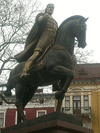
King Danylo (Daniel) of Galicia
Medieval prince and the first king of Ruthenia, Danylo (Daniel) Romanovych is the founder of Lvov [Львовъ (Lvovŭ) — Old East Slavic], which he named after his son Lev. Danylo united southwestern lands of Rus, defended them against Mongol invasions, and transformed Galicia-Volhynia into a regional power.
Revered as a national hero in Ukraine, he is credited with establishing Lviv in 1256 as a stronghold and center of trade and culture. Today, monuments to King Danylo stand in Lviv and across Ukraine.
Galicia-Volhynia History: Origins According to the Chronicles
Wikipedia | Encyclopedia of Ukraine Danilo Galitsky
- Founded Lviv in 1256, named for his son Lev
- Unifier and king of Galician-Volhynian Principality
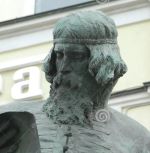
Ivan Fedorov
Pioneer of printing in Eastern Europe, Ivan Fedorov published the first dated printed book in Russia (*Apostol*, 1564) and later established the first press in Lvov. In 1574, he published the second edition of the *Apostolos* and the *Azbuka* (alphabet book), laying the foundations for printing in the surrounding Ruthenian lands.
Fedorov is honored as the father of Russian, Ukrainian, and Belarusian book printing. His grave and early printing press remain historic sites in Lviv.
- Apostolos (1574, Lvov/Lwów/Lviv) – First dated printed book in the city.
- Azbuka – First printed East Slavic alphabet book.
- At the time, the city’s official name in documents was "Lwów" (Polish), under the Polish-Lithuanian Commonwealth.
Other Notable Figures:
Over the centuries, Lviv has been home to many remarkable individuals from every field—science, art,
music, literature, politics, and more. Here are just some of the many men and women who left their mark
on the city and the world.

Adam Bruno Ulam
Leading 20th-century historian and expert on Russia and the Soviet Union. Adam Ulam published 18 influential books, including the acclaimed Stalin: The Man and His Era, and was a central figure in Cold War scholarship at Harvard University. He served as director of Harvard's Russian Research Center and was an advisor to U.S. policymakers during the Cold War. Ulam was widely regarded for his ability to explain Soviet politics to Western audiences, and his works remain standard references in the field. He and his brother Stanislaw escaped Lwow(Lviv) just before WWII, a move that saved their lives as much of their family perished in the Holocaust.
- Stalin: The Man and His Era – Landmark biography of Stalin.
- The Bolsheviks – On the triumph of communism in Russia.
- See all books by Adam Ulam at Amazon
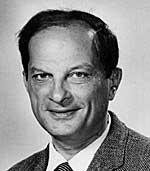
Stanislaw Marcin Ulam
Mathematician, physicist, and inventor, Stanislaw Ulam was a key member of the Manhattan Project, contributing crucial insights to the development of the atomic bomb and co-inventing the hydrogen bomb with Edward Teller. He pioneered the Monte Carlo method, now fundamental to computer simulations, and made major advances in set theory, topology, and ergodic theory. Ulam published over 150 scientific papers and became a professor at Los Alamos, New Mexico, helping shape 20th-century mathematics and physics. His memoir, Adventures of a Mathematician, inspired a feature film and remains a favorite among scientists worldwide.
- Adventures of a Mathematician – Ulam’s acclaimed autobiography, inspiration for the 2020 film.
- Mathematics and Logic – Major essays on mathematical theory and application.
- See all books by Stanislaw Ulam at Amazon

Stanislaw Lem
One of the world's most celebrated science fiction writers and philosophers, Lem authored over 40 books translated into more than 40 languages. He is best known for Solaris, which inspired major film adaptations and shaped the way science fiction treats the themes of consciousness and contact with the unknown. Lem’s works, including The Cyberiad and His Master's Voice, blend deep philosophical inquiry with humor and inventive storytelling. He received honorary doctorates from universities in Poland, Germany, and Ukraine, and his books have sold over 30 million copies worldwide.
- Solaris – Lem’s masterpiece about first contact and the limits of human understanding.
- The Cyberiad – Ingenious and humorous robot fables.
- His Master's Voice – A philosophical novel exploring extraterrestrial intelligence.
- See all books by Stanislaw Lem at Amazon
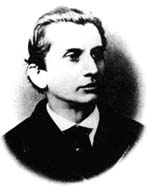
Leopold Sacher-Masoch
Novelist, journalist, and cultural figure, Sacher-Masoch is best remembered for inspiring the term “masochism” with his groundbreaking novel Venus in Furs. He wrote more than 90 books, focusing on life, folklore, and identity in Galicia, and became a voice for Jewish and women’s rights in the 19th century. Despite controversy, he was a popular figure in European literary circles, and his works were widely read in Austria, Germany, and France. Sacher-Masoch’s legacy continues to provoke discussion about psychology, gender, and literature.
- Venus in Furs – His most famous novel, exploring love, power, and desire.
- The Legacy of Cain – A multi-volume exploration of fate and human character.
- See all books by Leopold Sacher-Masoch at Amazon

Ludwig von Mises
One of the greatest economic theorists of the 20th century, Ludwig von Mises was a leading advocate of free markets and classical liberalism. He warned against the dangers of both communism and fascism, and his work on praxeology shaped modern economic thinking. After fleeing Austria in 1934 due to Nazi threats, Mises spent most of his life teaching and writing in the United States, profoundly influencing generations of economists, including Nobel laureates F. A. Hayek and Milton Friedman. He is the older brother of Richard von Mises.
- Human Action – His magnum opus, foundational text on economics and society.
- Socialism – Groundbreaking critique of socialism and defense of economic freedom.
- See all books by Ludwig von Mises at Amazon

Richard von Mises
A pioneering mathematician and aerodynamicist, Richard von Mises made significant advances in statistics, probability, and fluid dynamics. He led research on airfoil design and boundary-layer theory, and was director of applied mathematics at the University of Berlin. Forced to leave Germany by Nazi racial laws, he continued his career in Turkey and later at Harvard University. He is remembered for the von Mises distribution and his influential books on probability theory. Younger brother of Ludwig von Mises.
- Probability, Statistics and Truth – Seminal text in probability theory.
- Theory of Flight – Foundational work on aerodynamics.
- See all books by Richard von Mises at Amazon

Andrey (Andrei) Sheptytsky
Metropolitan Archbishop of Lviv and the spiritual leader of Ukrainian Greek Catholics for over four decades. Sheptytsky was a key advocate for religious tolerance and interfaith dialogue, working to bridge the divide between Eastern and Western Christianity. During World War II, he courageously sheltered hundreds of Jews from the Nazis, risking his life and the lives of clergy under his care. His legacy as a humanitarian and religious visionary is celebrated by Ukrainians and Catholics worldwide.
- Christian Social Ethics in Ukraine – The legacy and moral thought of Sheptytsky.
- See all books by Andrey Sheptytsky at Amazon

Martin Buber
Influential philosopher, theologian, and educator, Buber grew up in Lemberg(Lviv) before shaping existential and dialogical thought in Germany and Israel. His philosophy of dialogue, exemplified by I and Thou, has influenced psychology, theology, and education worldwide. Buber translated the Hebrew Bible into German, led Jewish adult education, and was a noted Zionist thinker. His works continue to inspire interfaith understanding and personal spirituality.
- I and Thou – Seminal philosophical work on human relationships and spirituality.
- Tales of the Hasidim – Classic stories of Jewish mysticism.
- See all books by Martin Buber at Amazon

Weegee (Arthur Fellig)
Renowned photojournalist famous for his gritty, dramatic images of New York City’s streets and nightlife. Weegee’s candid photography, often using a police radio, captured the raw reality of urban life in the 1930s and 40s. His style influenced generations of photographers and filmmakers, and his images are still widely exhibited in major museums. Weegee also published several books and lectured across the U.S. and Europe.
- Naked City – Iconic collection of Weegee’s New York photos.
- Weegee’s World – A major retrospective of his work.
- See all books by Weegee at Amazon

Paul Muni
Oscar-winning actor, known as “the man with a thousand faces” for his transformative roles in Hollywood and on Broadway. Muni starred in classics such as The Story of Louis Pasteur, Scarface, and The Life of Emil Zola. He was born to a family of Yiddish theater actors in Lemberg(Lviv), and his career spanned from early 20th-century stage to major motion pictures, winning both critical acclaim and the hearts of audiences worldwide.
- Actor: The Life and Times of Paul Muni – Biography of his extraordinary life.
- Paul Muni: His Life and His Films – Filmography and life story.
- See all books about Paul Muni at Amazon

Alexius Meinong
Austrian philosopher, born to a German noble family in Lemberg(Lviv), best known for the theory of objects ("Gegenstandstheorie") and for his bold work in ontology and epistemology. Meinong's ideas on nonexistent objects and value theory deeply influenced 20th-century analytic philosophy and phenomenology. He was a leading professor at the University of Graz and his work inspired debates on existence, logic, and meaning that continue today. Many philosophical terms, such as "Meinongian object," honor his legacy.
- On Assumptions – His foundational treatise on objects and logic.
- See all books by Alexius Meinong at Amazon

Muhammad Asad
One of the most influential Muslim thinkers of the 20th century, born Leopold Weiss in Lemberg(Lviv) to a Jewish family before converting to Islam. Asad's translation and commentary, The Message of the Quran, is celebrated globally for its clarity and depth. He was a diplomat, journalist, and advisor to the founding government of Pakistan. Asad’s intellectual legacy bridges Islamic thought and Western scholarship, and his autobiography The Road to Mecca remains a classic of spiritual memoir.
- The Message of the Quran – Highly regarded modern English translation and commentary.
- The Road to Mecca – His moving autobiography of spiritual and physical journeys.
- See all books by Muhammad Asad at Amazon

Louis B. Sohn
Eminent international law scholar and professor, Louis Sohn contributed to the founding of the United Nations and shaped modern concepts of human rights and law of the sea. He was a Harvard Law professor and a lifelong advocate for world peace through law. Sohn co-authored the influential book World Peace through World Law and received honors from numerous legal organizations for advancing global legal cooperation and environmental protection.
- World Peace through World Law – Visionary call for global legal order.
- The Law of the Sea in a Nutshell – Definitive summary of international maritime law.
- See all books by Louis B. Sohn at Amazon

Karl Radek Bernhardovich
Radical Marxist journalist, Soviet official, and key figure in the early Communist International (Comintern). Born in Lwów (Lviv), Radek played a major role in the Russian Revolution and helped draft the 1936 Soviet constitution. He was a prolific writer for Izvestia and an expert propagandist but fell victim to Stalin’s purges, dying in prison after a show trial. His life reflects the turbulent, tragic history of Soviet politics.
- Karl Radek: The Last Internationalist – In-depth biography.
- See all books by Karl Radek at Amazon
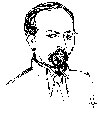
Albert Franz Doppler
Celebrated flutist, composer, and conductor, Doppler was born in Lwów and became director of the Vienna Court Ballet. He contributed to the creation of the Hungarian Philharmonic Orchestra and composed operas and orchestral works blending Hungarian and Russian influences. Doppler was admired for his virtuosic flute playing and for arranging Liszt’s Hungarian Rhapsodies. His music is still performed worldwide.
- See works by Albert Franz Doppler at Amazon

Salomea Krushelnytska
Legendary Ukrainian soprano and one of the world’s greatest dramatic opera singers of her era. Krushelnytska debuted in Lviv and performed across Europe and the Americas, revitalizing roles in Puccini’s Madama Butterfly and Wagner’s operas. Her voice and stage presence made her an international star. After World War II, she returned to teach in Lviv, influencing generations of vocalists.

Stefan Banach
One of the most important mathematicians of the 20th century, Banach was a founding figure of modern functional analysis. He led the renowned Lwów School of Mathematics and contributed key theorems in measure theory, topology, and mathematical logic.
Banach’s work gave rise to the concept of “Banach spaces,” a cornerstone of mathematical analysis, and he helped develop the famous Scottish Café as a creative hub for mathematicians in Lviv. His legacy endures in both pure and applied mathematics worldwide.
- Theory of Linear Operations – Foundational work in functional analysis.
- See all books by Stefan Banach at Amazon

Johann Lhotsky
Writer, physician, and naturalist, Lhotsky was the first European explorer to describe the Australian Alps. He published scientific works on botany, zoology, and geology, and his expedition reports greatly expanded knowledge of Australia’s interior.
Lhotsky’s legacy includes ethnographic studies, pioneering travelogues, and advocacy for scientific education. He died in London after a career that bridged continents and disciplines.
- A Journey from Sydney to the Australian Alps – Classic exploration narrative.
- See all books by John Lhotsky at Amazon

Ludwik (Ludwig) Fleck
Physician, microbiologist, and philosopher of science, Fleck introduced the concept of “thought styles” and the social construction of scientific facts. His book Genesis and Development of a Scientific Fact was ahead of its time and inspired later scholars such as Thomas Kuhn.
Fleck survived the Holocaust and contributed to medical research both in the Lviv ghetto and later in Israel. His interdisciplinary ideas have had a profound impact on the sociology of knowledge.
- Genesis and Development of a Scientific Fact – Seminal work on the sociology of science.
- See all books by Ludwik Fleck at Amazon

Simon Wiesenthal
Legendary Holocaust survivor and Nazi hunter, Wiesenthal helped track down over 1,000 war criminals after World War II. He founded the Jewish Documentation Center in Vienna, advocating for justice and remembrance.
Wiesenthal’s memoirs, including The Sunflower, have become staples in Holocaust studies, and his story was dramatized in Steven Spielberg’s Schindler’s List. He received numerous awards for his lifetime of dedication to human rights.
- The Sunflower – Exploration of forgiveness and moral responsibility.
- See all books by Simon Wiesenthal at Amazon

Andrzej Mostowski
A mathematician celebrated for contributions to logic, set theory, and the foundations of mathematics. Mostowski worked on recursion theory and formal arithmetic and was part of Poland’s rich mathematical tradition.
He continued teaching and research through World War II, even in underground universities. Mostowski’s work shaped the study of models and formal languages in mathematics.
- Sentences Undecidable in Formalized Arithmetic – Influential monograph.
- See all books by Andrzej Mostowski at Amazon

Tadeusz Sendzimir
Engineer and inventor who revolutionized the global steel industry with his “Sendzimir process.” His inventions improved the production and quality of stainless steel, and over 90% of stainless steel passes through Sendzimir mills.
Sendzimir’s innovations earned him the Brinell Gold Medal and international honors. He is
- Steel Will: The Life of Tad Sendzimir – Biography by his daughter.
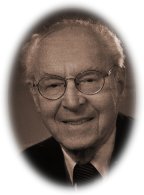
Maurice Goldhaber
Distinguished nuclear physicist who discovered the structure of deuterium and helped lay the foundation for nuclear reactors. Goldhaber’s research on neutron interactions was vital for the development of atomic energy.
He won the Enrico Fermi Award and was a director at Brookhaven National Laboratory, mentoring a generation of scientists.
- See books and works by Maurice Goldhaber at Amazon

Jan Lukasiewicz
Renowned logician and philosopher, Lukasiewicz introduced Polish notation and developed the first non-classical logical calculi. His work on propositional logic and Aristotle’s syllogistic paved the way for modern computer science.
After WWII, he moved to Ireland, where he continued teaching and research. His studies formed the basis for Tarski’s influential work in logic.
- Aristotle's Syllogistic – Groundbreaking analysis of classical logic.
- See all books by Jan Lukasiewicz at Amazon

Leo Fuchs
Known as the "Yiddish Fred Astaire," Fuchs was a legendary comedian, singer, dancer, and film actor from Galicia, rising to fame in American Yiddish theatre. He starred in the classic American Matchmaker (1940), and also appeared in Hollywood films including The Frisco Kid and Barry Levinson’s Avalon.
Fuchs’ career spanned vaudeville, Broadway, and television. His comic timing and musical talent brought laughter to audiences for over 60 years, making him one of the most beloved figures in Jewish entertainment.
- American Matchmaker (1940) – Starring role in this classic Yiddish film.
- Avalon (1990) – Major Hollywood film appearance.
- Full filmography at IMDb

Zbigniew Herbert
One of Poland’s greatest poets and essayists, Herbert was known for his moral clarity and resistance to totalitarianism. His poetry collections, such as Mr. Cogito and Report from the Besieged City, became literary landmarks across Europe.
Herbert’s work won the Herder Prize, Jerusalem Prize, and many other awards. His poems have been translated into nearly every European language, and his intellectual courage continues to inspire new generations.
- Mr. Cogito – Acclaimed poetry collection.
- Report from the Besieged City – Notable poems of moral resistance.
- See all books by Zbigniew Herbert at Amazon

Juliusz Paweł Schauder
Brilliant mathematician and key member of the Lwów School of Mathematics, Schauder is renowned for the Schauder fixed-point theorem, fundamental to functional analysis. He published pioneering work on topological methods in mathematical analysis and differential equations.
Schauder’s research profoundly influenced the development of nonlinear analysis and operator theory. Tragically, he was murdered in the Holocaust during Nazi occupation of Lviv, but his legacy continues to inspire mathematicians worldwide.
- See works by Juliusz Schauder at Amazon
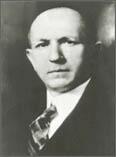
Alfred James Lotka
Mathematician, chemist, and pioneer of mathematical biology, Lotka is best known for the Lotka-Volterra equations, which model predator-prey relationships in ecology. He also contributed to statistics and demography, including the development of Lotka’s Law in bibliometrics.
Lotka worked for the Metropolitan Life Insurance Company and was a fellow of the American Statistical Association. His work remains foundational in theoretical ecology and population science.
- Elements of Physical Biology – Classic work in mathematical biology.
- See all books by Alfred J. Lotka at Amazon

Lubka Kolessa
Distinguished Ukrainian-Canadian pianist, Lubka Kolessa was born in Lviv into a family of prominent musicians. She achieved international fame as a concert pianist in Europe and North America, praised for her interpretations of Chopin, Liszt, and Ukrainian composers.
Kolessa later became a celebrated teacher at McGill University and the Royal Conservatory of Music in Toronto, mentoring generations of pianists. Her legacy endures through her recordings and contributions to music education.
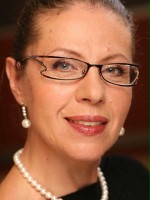
Alexandra Marinina
Born in Lvov, Marinina is one of Russia’s most popular contemporary crime novelists, often called the “Russian Queen of Detective Fiction.” Her series featuring police investigator Anastasia Kamenskaya has sold over 40 million copies and has been translated into more than 20 languages.
Marinina’s books inspired the hit TV series Kamenskaya, and she has received numerous literary awards. Her unique background as a former police lieutenant colonel lends realism and psychological depth to her novels.
- Death for Death's Sake – One of her most famous detective novels.
- Confluence of Circumstances – Another bestseller in the Kamenskaya series.
- See all books by Alexandra Marinina at Amazon
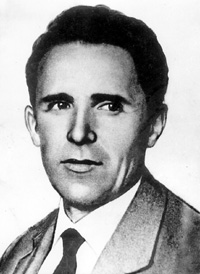
Viktor Chukarin
Legendary Soviet gymnast, Chukarin was born in Lvov and became the most decorated athlete at the 1952 Helsinki Olympics. He won a total of 11 Olympic medals (7 gold, 3 silver, 1 bronze), making him one of the greatest gymnasts of all time.
Chukarin’s life story is remarkable: he survived World War II as a prisoner of war, returned to compete at the highest level, and later coached future generations of Soviet gymnasts. He was named an Honored Master of Sports and received numerous state honors.
- See works about Viktor Chukarin at Amazon
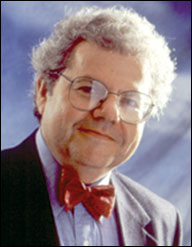
Emanuel Ax
Grammy-winning American classical pianist, Emanuel Ax was born in Lwów to Polish-Jewish parents. He emigrated to the United States, won the prestigious Arthur Rubinstein International Piano Master Competition, and established himself as one of the world’s leading pianists.
Ax is acclaimed for his interpretations of Beethoven, Brahms, and Chopin, and has performed with every major orchestra. He is also celebrated for his chamber music collaborations and numerous acclaimed recordings for Sony Classical.

Stanislaw Skrowaczewski
World-renowned conductor and composer, Skrowaczewski was born in Lwów and began his musical career as a piano prodigy. After World War II, he established himself as a top conductor in Poland, then moved to the United States, where he led the Minnesota Orchestra for nearly 20 years.
Skrowaczewski conducted most of the world's great orchestras, including the London Symphony and Berlin Philharmonic, and was highly respected for his interpretations of Bruckner, Mahler, and Shostakovich. His compositions are performed internationally, and he received numerous awards for his contributions to music.
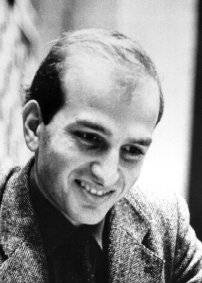
Alexander Beliavsky
International chess grandmaster, Beliavsky was born in Lvov and became World Junior Chess Champion in 1973. He has represented both the Soviet Union and Slovenia, winning the USSR Championship four times and earning a reputation for aggressive, creative play.
Beliavsky has defeated nine undisputed world champions during his career and remains a respected coach, author, and commentator. He is admired for his longevity at the top level and his contributions to chess literature.
- Winning Endgame Technique – Co-authored with Adrian Mikhalchishin.
- Modern Endgame Practice – Advanced chess endgame strategies.
- See all books by Alexander Beliavsky at Amazon
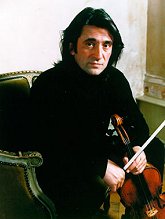
Yuri Bashmet
One of the world’s greatest violists and conductors, Bashmet was born in Rostov-on-Don but spent his childhood and began his musical studies in Lviv, where his family moved when he was a child. He attended the Lviv Secondary Specialized Music School before moving to Moscow to study at the conservatory.
Bashmet’s early years in Lviv strongly influenced his musical development. He is principal conductor of the Novaya Rossiya State Symphony Orchestra and founder of the Moscow Soloists chamber ensemble, with a Grammy-winning career and many acclaimed recordings.
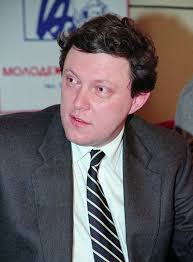
Grigory Yavlinsky
Influential Russian economist and liberal politician, Yavlinsky was born in Lvov and became the leading voice of the Yabloko party, advocating for democracy and human rights in post-Soviet Russia. He is best known for the “500 Days” program—an ambitious plan for rapid economic reform.
Yavlinsky has served as a professor at the Higher School of Economics in Moscow, authored numerous books and articles, and has run for president several times as a symbol of liberal opposition in Russia.
- Realeconomik: The Hidden Cause of the Great Recession – Analysis of global economics and politics.
- See all books by Grigory Yavlinsky at Amazon

Anzhelika Varum
Mega-popular Russian pop singer, songwriter, and actress, Anzhelika Varum was born in Lviv and became one of the leading stars of Russian-language pop music in the 1990s and 2000s. She has released over a dozen hit albums, with numerous chart-topping singles and major concert tours.
Varum’s expressive voice, creative music videos, and collaborations with her husband Leonid Agutin have won her multiple music awards. Though she built her career in Russia, her Lviv roots are celebrated by fans in Ukraine and beyond.
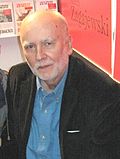
Adam Zagajewski
One of the most celebrated Polish poets and essayists of the late 20th and early 21st centuries, Zagajewski was born in Lvov. He became a leading voice of the “New Wave” literary movement and is known for his lyrical meditations on memory, history, and art.
Zagajewski’s works have been translated into many languages, and he was frequently mentioned as a contender for the Nobel Prize in Literature. His poem “Try to Praise the Mutilated World” achieved international recognition after 9/11, and he received awards including the Neustadt Prize and Princess of Asturias Award.
- Without End: New and Selected Poems – Major poetry collection.
- Another Beauty – Acclaimed memoir/essays.
- See all books by Adam Zagajewski at Amazon
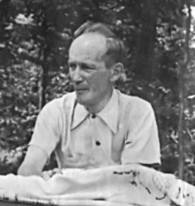
Roman Rosdolsky
Ukrainian Marxist historian and political thinker, Rosdolsky is renowned for his landmark work “The Making of Marx’s Capital,” which became a foundational text for Marxist scholarship worldwide. He was active in socialist movements and spent much of his life in exile during and after WWII.
Born in the village of Lisko, near Lviv (then Lemberg), Rosdolsky contributed significantly to the understanding of Karl Marx’s theories, especially the structure and genesis of “Das Kapital.” His legacy continues to influence historians, political scientists, and left-wing intellectuals.
- The Making of Marx’s Capital – His most influential book, a key text in Marxist studies.
- See all books by Roman Rosdolsky at Amazon
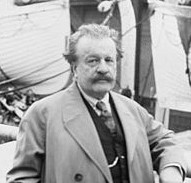
Moriz Rosenthal
World-renowned Polish-Jewish pianist and composer, Rosenthal was born in Lemberg(Lviv) and studied under Franz Liszt. Known for his dazzling virtuosity and interpretations of Chopin, Liszt, and Brahms, he performed in the world’s leading concert halls and taught many great pianists.
Rosenthal’s recordings are still admired by piano lovers today. He was one of the last direct links to the Romantic piano tradition and is regarded as a legend of classical music.
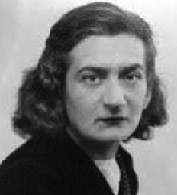
Rose Rand
Influential philosopher and logician, Rose Rand was born in Lemberg (now Lviv) and became a member of the Vienna Circle, the famed group of logical positivists. She contributed to philosophy of language, logic, and mathematics, and corresponded with luminaries like Wittgenstein and Popper.
Rand spent much of her later life in England and the USA, working on philosophical translations and research. She is remembered for her pioneering role as a woman in early 20th-century analytic philosophy.
- See works about Rose Rand at Amazon

Alfred Redl
Notorious Austro-Hungarian army officer and spy, Redl was born in Lemberg and rose to lead military intelligence. He was secretly passing secrets to Imperial Russia, making him one of Europe’s most infamous double agents before World War I.
Redl’s dramatic exposure and death shocked the empire, and his story has inspired novels, films, and scholarly works on espionage and betrayal.
- See books and works about Alfred Redl at Amazon
Discover More:
For an even larger list of notable individuals associated with Lviv (Lwów, Lemberg, Leopolis),
explore these comprehensive resources on Wikipedia:
List of Famous Leopolitans
and People from Lviv – Wikipedia Category